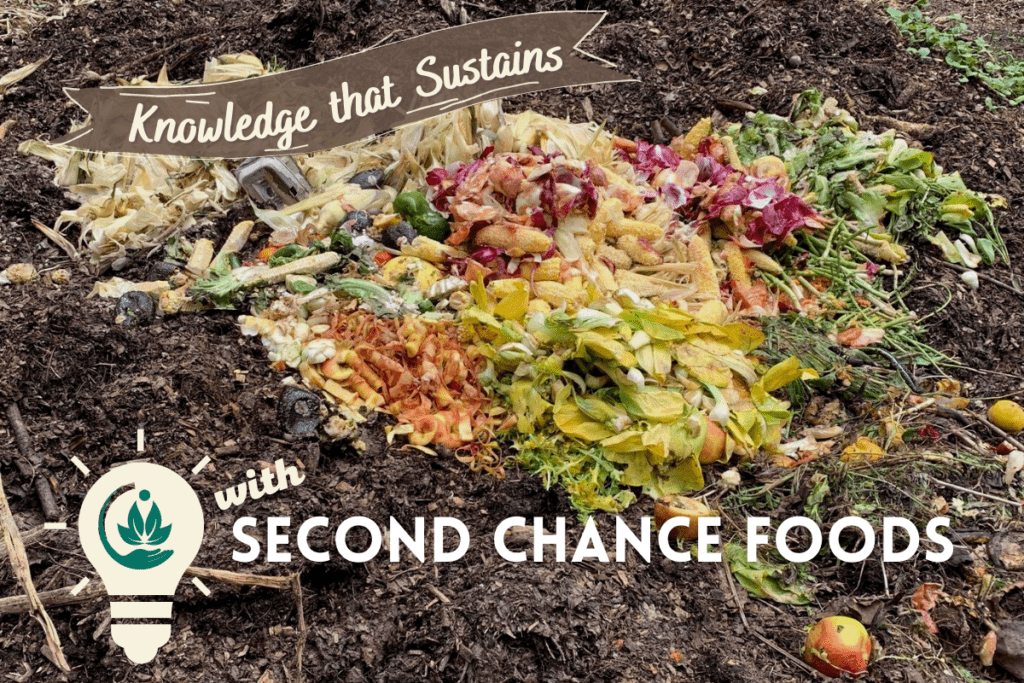
Composting at home
Did you know 30% of your waste is compostable?!
Save Money and Reduce Your Carbon Footprint
Do you compost at home? Managing the decomposition of matter saves money and is also good for the Earth by reducing your carbon footprint and landfill use! Second Chance Foods is proud to compost the produce scraps from our kitchen. We’re also extremely fortunate that not only does Rich Robbins grow food for our hunger relief, but he also has a very extensive composting area which comes in handy when we’re cooking something like fresh corn that comes with a lot of scraps!
Compost is a dark, crumbly, and earthy-smelling form of decomposing organic matter that is simpler than you think to manage at home. There are ready-made indoor and outdoor options to help get you started, DIY methods, and if you’re adventurous- vermiculture techniques that use worms to speed up the decomposition.
Once you start composting you’ll marvel with us at how food scraps, wood chips, newspaper, and more break down to soil. Your plants will love the added nutrients, increased moisture retention, stabilized pH, and enhanced soil structure overall. Visit the Cornell Cooperative Extension Website for a variety of resources to get you started.
Why It Matters
Composting is the most practical and convenient way to handle your yard and food waste. It can be easier and cheaper than the most common way of disposing of waste through bagging and filling landfills. In addition, compost provides nutrients and useful life to the soil, improves soil structure, and helps prevent runoff that can pollute rivers and lakes.

What Goes In
Most food scraps and all garden trimmings!
Fill your bin with fruits & veggies, tea & tea bags, coffee grounds & filters, newspaper, eggshells, napkins & paper towels, hair or fur, yard waste, and natural fibers. Yard wastes, such as fallen leaves, grass clippings, weeds, and the remains of garden plants, make excellent compost.

What Stays Out
Some more extensive facilities might be able to process these items, but to keep your products free of pests, bacteria, and strong smells, you’ll want to avoid these items at home: Meat, eggs, dairy, plastic, excessive cooking oil, metal, and plastic-coated paper cups or plates. Some sources also recommend avoiding bread and grains if your compost is outside and may attract critters.

Keep It Balanced
To build a healthy place for your compost, you’ll need to ensure the materials are added and kept at the right conditions. Keep them as moist as a wrung-out sponge and have many air passages with an even balance of sun and rain exposure. Cutting larger items up will also help keep things balanced. A 1:1 ratio of brown materials like dried leaves, eggshells, and newspapers with green items like food scraps and coffee grounds will also help balance nutrients, and the organisms decompose correctly.